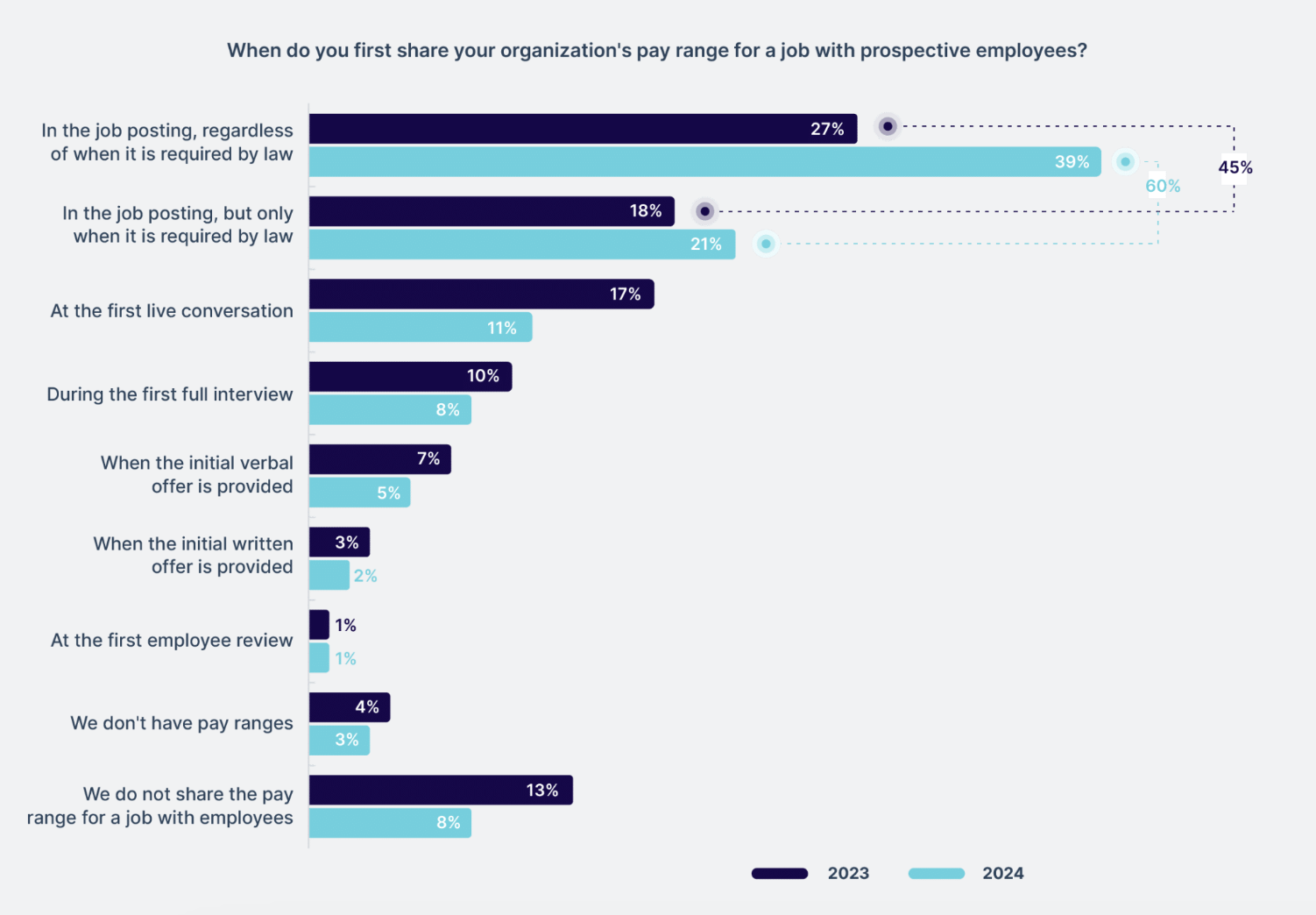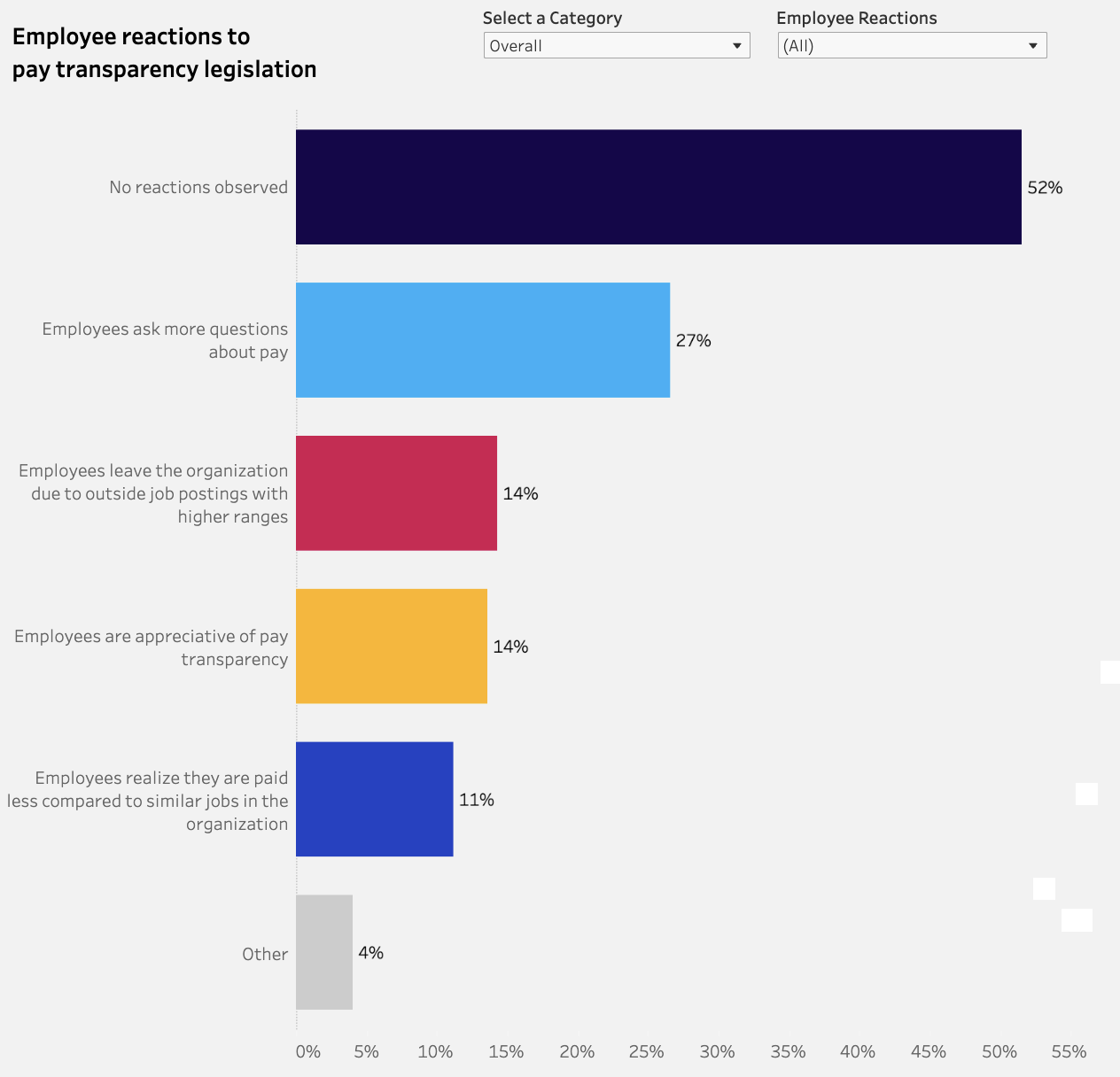'Alarmingly, more than a quarter of employers are not proactive about correcting pay disparities'

Pay transparency is gaining further ground across workplaces, finds a new report.
Payscale found that 60% of employers are now publishing pay ranges job postings, 15% higher than last year.
The report analysed survey data from 5,735 respondents predominantly in the United States (82 percent), with 11 percent in Canada and the rest from other countries.
The practice is most observed in workplaces where it is required by law to publish pay ranges in job postings, but it is also gradually gaining more steam in areas without similar legislations.

Source: Payscale
Pay transparency turnover
According to the report, more than half of respondents (52%) say they haven’t had any reaction from employees about pay transparency, but another 27% say that employees have been asking more questions about their pay.
In addition, 14% have experienced talent loss due to employees seeing postings with higher ranges elsewhere, and 11% say that employees have realized through job postings that they are underpaid.
Despite these reactions, 27% of employers confessed that they aren't addressing severely underpaid employees unless asked by managers or the employee.

Source: PayScale
Another 51% of organisations added that they aren't training managers on how to have conversations about pay with their employees.
"Fair pay is the bedrock of compensation strategy, yet alarmingly, more than a quarter of employers are not proactive about correcting pay disparities," said Ruth Thomas, pay equity strategist at Payscale, in a statement.
"We're seeing forward-thinking companies, on the other hand, make adjustments for external and internal pay equity, pay compression, and competitive skills — while diversifying their workforce by removing barriers to entry like degree requirements."
Compensation challenges
The findings come as HR leaders named compensation as their biggest challenge this year (50%), surpassing recruitment (44%), retention (42%), and engagement (37%).
More than half of the respondents (53%) said they already have a formal compensation strategy in place, while 29% are still considering it.
For 2024, only 79% of organisations are planning to hike pay, lower than the 86% in 2023. Another 14%, however, said they remain unsure.
Organisations are also expecting an average base pay increase of 4.5% in 2024, slightly lower than the 4.8% handed out last year.
Lexi Clarke, chief people officer at Payscale, said the report shows how transparent pay practices and meaningful raises are now crucial in attracting and retaining talent.
"Half of employers don't yet have a compensation strategy or pay communications in place, but employee engagement hinges on workers understanding the 'what' and 'why' behind their pay," Clarke said.







